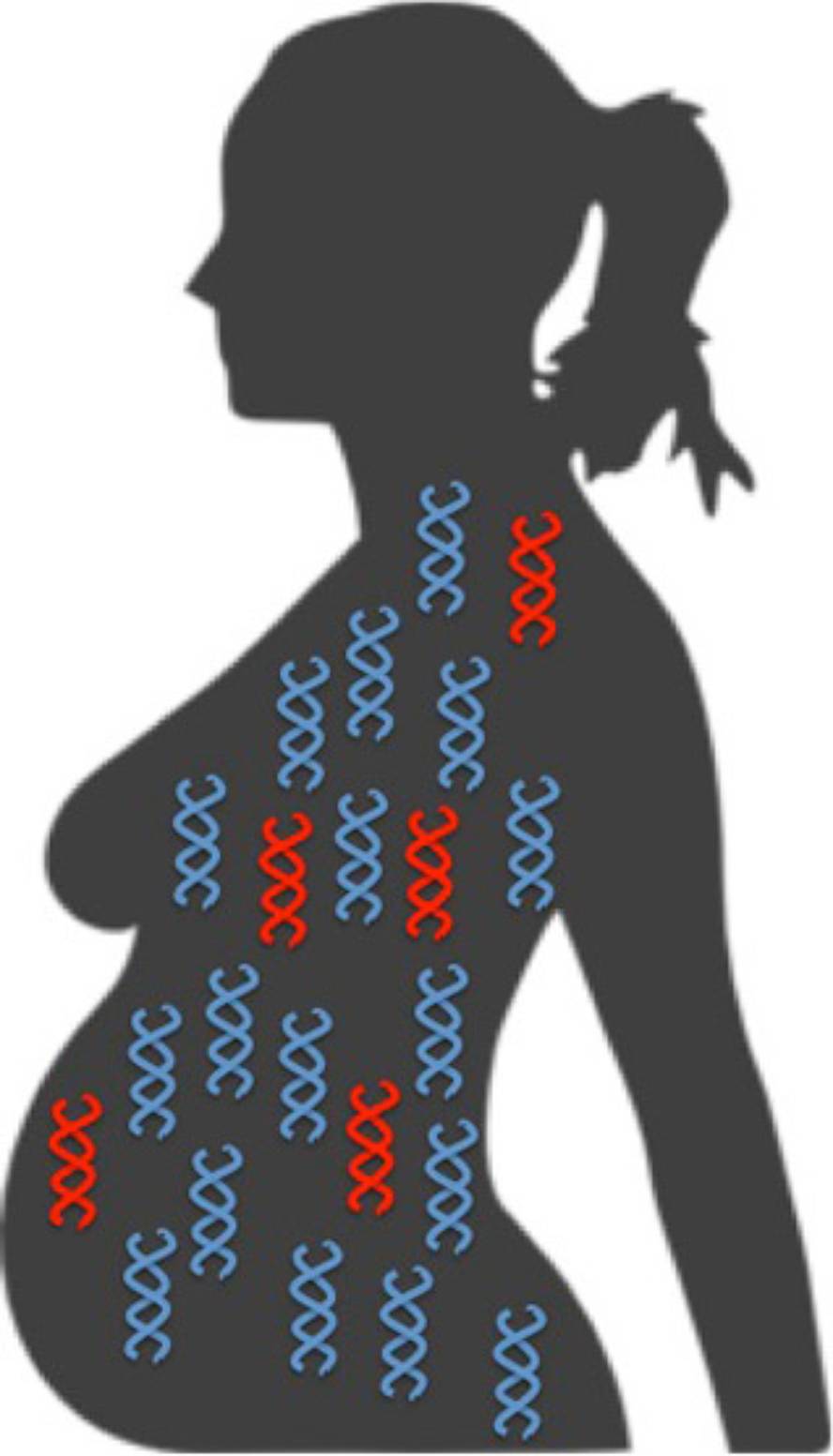Inferring the fetus genome from the maternal blood

Leveraging his mother's blood, his father's saliva, sequence techniques, and bioinformatics, researchers at the University of Washington have been able to predict the genome of an 18-week fetus. Genetic analyses performed after the birth of the baby have demonstrated an accuracy of 98%. They have also achieved 95% accuracy when performing the same test with an 8-week fetus, according to the journal Science Translational Medicine.
For their prediction, researchers have performed an analysis of the fetal genome circulating through maternal blood. In 1997, researchers at the Chinese University of Hong Kong demonstrated that about 13% of the DNA circulating freely in the maternal blood corresponds to the fetus. And the same research team (in 2010) found that in the mother's blood plasma appear the total genomes of the fetus and the mother in constant proportion. Then they announced that knowing the haplotypes of the father and mother could deduce the genome of the fetus.
Haplotypes are the set of genetic variants that exist between the chromosomal pairs of mother and father. If only the mother's genome existed in the blood, the different haplotypes would appear in a proportion of 50%, but as in the blood there are variants that the fetus has received from the mother, that proportion is not met and, once known the haplotypes of the mother, researchers can use the statistics to know what variants the fetus has received. To know what haplotytypes you have received from your father, just check which of them appear in the fetal DNA. This is what researchers at the University of Washington have done successfully.
They have even been able to predict 39 of the 44 de novo mutations detected in the newborn genome. However, the rate of false positives has been enormous for the new mutations, which have announced up to 25 million possible.Likewise, although the degree of accuracy of the announcement has been very high, it must be borne in mind that they have not been able to announce the inheritance to all haplotypes of the father and mother: It has been announced for the 2,800,000 variant, but some 750,000 have been excluded.
Therefore, despite the spectacular achievement and the possibility of developing a non-invasive genetic disease screening test, it is necessary to carefully analyze the exact clinical significance of predicting the fetal genome.





